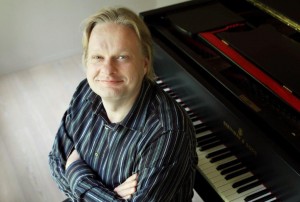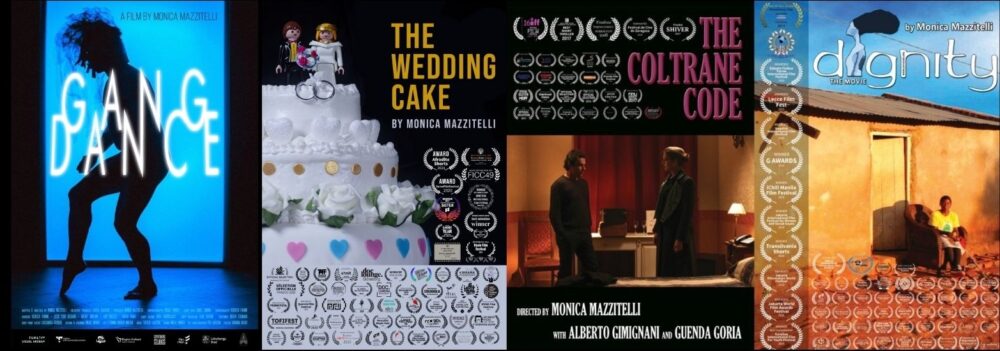 Concert at Casa del Jazz, Rome, Italy, January 18th, 2015
Concert at Casa del Jazz, Rome, Italy, January 18th, 2015
It’s a fact: jazz in the Nordic countries doesn’t like to take itself too seriously or to put on airs. The best Finnish pianist, and one of the best pianists in Europe overall, can kid around with the audience as if it were all a great game and at the same time express such virtuosity that he renders them speechless. Rantala’s first important solo tour in Italy was a great success, likely to be repeated. The tour ended in Rome, where he was welcomed with enthusiasm, even though he is not at all as well known here as he is in central and northern Europe, where he fills the auditoriums.
Despite the complexity of his performances, he never loses a sense of joyful self-expression, a boyish enthusiasm that sometimes even has him going for a comical effect, starting with his comments when introducing or concluding the tracks. But the aim is not to seduce: Iiro’s talent has no need for props. However, his virtuosity is never an end in itself; instead, he’s more of an entertaining juggler giving us a wink. His piano playing is recognizable by this mood that pervades it, but also by his ability to give meaning to "piano" and "forte", as well as his use of volume to give expression and meaning.
The evening’s repertoire was varied, taken from the last three works on the ACT label—Lost Heroes (2011), My History of Jazz (2012) and Anyone with a Heart (2014)—ranging from classical (Bach and Mascagni) to early jazz (Erroll Garner, Gershwin) and even pop, to end with modern jazz, with one of his very best pieces, "Tears for Esbjörn", dedicated to Svensson.
He opened the concert with his interpretation of the Kyrie Eleison Mass in B Minor by J.S. Bach, playing the melody with his right hand while improvising with his left, while the second piece, "Thinking of Misty" (dedicated to Garner), was one of his own pure, beautiful compositions.
After playing the third piece, his revisiting of “Aria – Goldberg Variation No. 1”, ending with a lovely Satie touch, he explained his personal belief that Bach was the first jazz musician in the history of music [opinion fully shared by the writer]. Next came his fast, almost flying, reinterpretation of "Liza" by Gershwin. For the fifth track, "Freedom", he said he was inspired by the novel of the same name by Jonathan Franzen. By placing some cloth on the strings of the central octaves, he made the piano sound almost like an oud, so that when he played on the higher octaves the keys fell like crystal drops.
The sixth piece was dedicated to John Lennon, in anticipation of a concert in his honor that Rantala will be holding in Germany in October. This was probably the least interesting piece of the concert, apart from the beautiful improvisation in the middle. In contrast, it is quite difficult to comment on the beauty of "Tears for Esbjörn", dedicated with evident emotion to a colleague whose death has deeply affected the soul of the Finn.
The last two tracks before the encore were devoted to his sons, Bruno and Topi, and perfectly express the character of each: the first, easygoing and cheerful (underlined by a delicious groove), and the second, dramatic and vigorous. For the encore, a homage to Mascagni with "Intermezzo", a revisiting of Cavalleria Rusticana, but played with the sweetness of Chopin.
Set list:
Bach – B Minor Mass Kyrie Eleison, Thinking of Misty, Bach – Aria and Goldberg Variation, Liza, Freedom, Woman, Tears for Esbjörn, Bruno, Topi, Mascagni – Intermezzo.
Iiro Rantala: piano
